Iran Has Tools To Resist Excessive Demands In Nuclear Talks – Foreign Minister
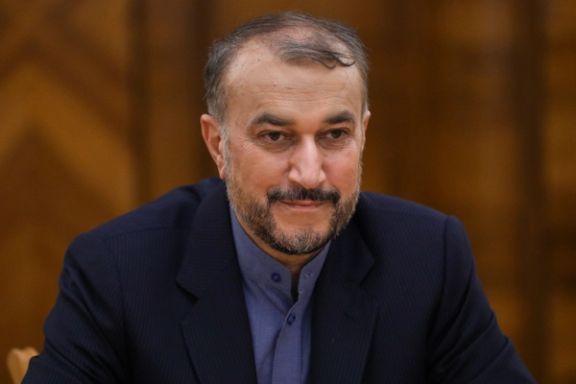
Iran’s foreign minister says Tehran is resisting excessive demands presented “by the other side” in talks to restore the 2015 nuclear deal that have stalled since March.

Iran’s foreign minister says Tehran is resisting excessive demands presented “by the other side” in talks to restore the 2015 nuclear deal that have stalled since March.
Hossein Amir-Abdollahian made the remarks on Sunday after attending a session of the Parliament’s Committee on National Security and Foreign Policy to brief lawmakers about a resolution passed by the board of governors of the International Atomic Energy Agency (IAEA) to condemn lack of cooperation by the Islamic Republic.
“Every time that the opposite side put forth excessive demands during the [Vienna talks], we used the country’s own tools and power, so that they would understand that the interests and welfare of the Iranian nation were important to us,” he said without elaborating on the tools, but he was probably referring to the government’s decision to reduce monitoring access to the UN nuclear watchdog.
Iran told the IAEA it plans to remove more monitoring equipment after the 35-member IAEA board Wednesday passed the resolution. Tehran says it intends to maintain a basic level of monitoring and inspectors’ access as required under the Nuclear Non-Proliferation Treaty (NPT).
In a statement issued by the Iranian parliament on Sunday, 260 lawmakers slammed the IAEA's “excessive, politically-motivated measure,” saying the resolution proves that the agency and its director general have lost all their technical credibility, in reference to Rafael Grossi’s recent visit to Israel.
On Friday, all Friday Prayer Imams in Iran, who are representatives of the Supreme Leader, backed the decision to reduce relations with the IAEA.
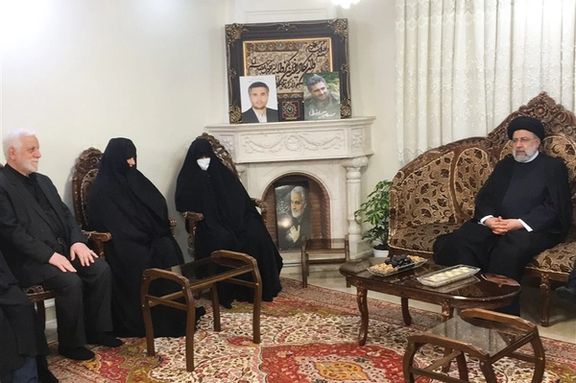
The Iranian president has paid a visit to the family of Colonel Hassan Sayyad-Khodaei, a commander of Iran’s Revolutionary Guard's Quds Force who was assassinated last month.
In his visit to the Sayyad-Khodaeis on Sunday, Ebrahim Raisi said that his assassination by the opponents of the Islamic Republic in Tehran near his home, instead of confronting him on the battlefield, is a sign of their despair and a victory for the country.
Despite Raisi’s assertion of victory, the assassination was seen as an intelligence and security failure by the government that allowed the killing of a secretive officer in broad daylight in the capital.
Sayyad-Khodaei was the acting commander of the elite Quds Unit 840, who was shot dead behind the wheel of his car on May 22 by two gunmen who fled the scene on a motorbike.
A European security source told Iran International in late May that Sayyad-Khodaei was in charge of planning terror operations outside Iran, including attacks in India, Thailand, Cyprus and Georgia. Suspicions for his assassination fell on Israel and according to some reports, Israeli officials told the United States that they had targeted Sayyad-Khodaei.
After his assassination, Iran International’s sources in Iran reported that another Quds Force unit 840 commander died under suspicious circumstances in Karaj, west of Tehran, on May 30. Colonel Ali Esmailzadeh died when he fell from the roof of his home.

More than 60 Iranian economists have issued a statement addressing the government saying that the main cause of Iran’s economic crisis is bad governance.
The signatories, mostly professors of economics in Iranian universities and many who have held government posts, suggest the government’s “economic surgery” since March has led to “social chaos and worsening economic instability.”
With the new Iran year beginning March 22, President Ebrahim Raisi with the backing of parliament began a plan to phase out state subsidies on food imports that had been costing $9-15 billion a year.
While in part a response to global food inflation sparked partly by the invasion of Ukraine, the move, quickly dubbed “economic surgery,” was officially portrayed as a serious reform of Iran’s state-dominated economy.
‘Quick measure in face of global price crisis’
The economists charged in their statement that the motivation was purely fiscal, easing a shortfall in the government budget, and that real reform required more serious change: “[The move was] a temporary and quick measure for addressing the budget deficit amid sanctions and a global food price crisis. We cannot consider this an economic reform.”
The economists argued that this “economic surgery” would lead to a further fall in the value of the Iranian rial and lead to “repeated economic shocks,” and said the government had not engaged with the public about where the policy would lead.
The economists noted Raisi’s election campaign promises to form an inclusive government, utilize experts to draft economic plans, slash “the 50-percent inflation rate,” and build one million housing units each year.
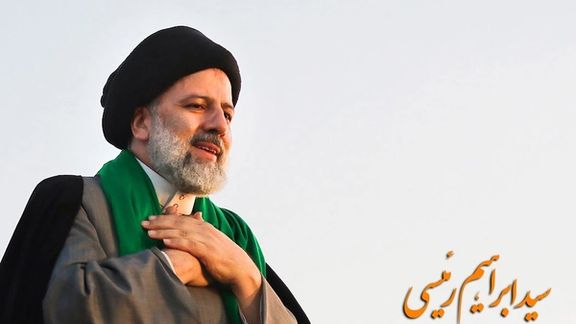
But the economists argued it would not be possible to fulfil such promises without an early agreement in talks with world powers to revive the 2015 nuclear deal and accession to international transparency and related regulations demanded by the Paris-based inter-state Financial Action Task Force (FATF), which blacklisted Iran in 2020.
Despite various restrictions on non-governmental media, many experts and business figures had warned over “the horrible” results of “inaction” in foreign policy and ill-designed policies, the economists said. Economic shocks and the pausing of nuclear talks in March had fed instability, social chaos, and widespread concern among the people over their livelihoods, creating an “explosive” situation.
They went on to warn that “the country’s situation is extremely fragile,” given the elimination of food subsidies. “People’s patience will run out and will place the government and the regime face-to-face with the people.”
Three recommendations
The signatories made three recommendations.
First, the state should have sufficient oil and non-oil export revenues and foreign currency reserves to ensure secure handling of economic fluctuations.
Second, the government should have clear and effective policies to foster macro-economic stability, with control over inflationary budgets.
Third, the government should ensure low-cost access to global markets for goods and services.
The last recommendation is related to extra costs Iranian government and businesses have to bear to do international transaction, given US sanctions and FATF’s blacklisting.
Low growth
The economists warned that Iran had lost ground economically compared with most other countries since 1980, with average growth of 1.6 precent, whereas growth in China, India, Turkey, Malaysia, the United Arab Emirates, and Pakistan had ranged from 4 to 10 percent.
The economists spoke of vanishing hopes, growing poverty and a widening income gap that have led to vengefulness in society. The resulting disorder exhibited itself in destruction of the environment, systematic corruption, widespread emigration, capital flight and brain drain.
The 61 signatories called for “fundamental change in foreign policy” aimed at peaceful coexistence, cooperation with neighbors, and interaction with the world’s economic powers. They also urged improvement in governance, with respect for law, minimizing corruption, establishing an independent judiciary, dialogue and transparency, and allowing “true economic competition” in society.
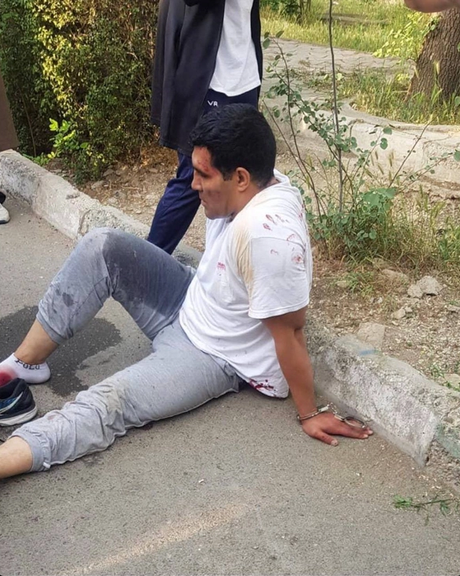
A court in Iran has dismissed a lawsuit by an Iranian boxer who was shot by a morality police officer while he was promenading in a park with his wife and 11-month daughter.
Reza Moradkhani said in an interview with Shargh daily published Saturday that they were walking in the Pardisan park in Tehran late in May when a 22-year-old morality police officer confronted his wife, Maria Arefi, and following verbal confrontation with the agents they pepper sprayed Moradkhani and Arefi and even their toddler.
Moradkhani then charged for one of the agents who had insulted his wife and the agent fired 10 shots at him, four of which hit the Iranian national team boxer, resulting in his hospitalization.
The Moradkhanis said that they had filed a complaint at the military court but that the court ruled against them and charged them with removing hijab and attacking a police officer.
The incident has gone viral on Iranian social media, with people condemning hijab policing and police impunity.
The paper quoted a witness as saying that the police officer who fired at Moradkhani forced bystanders who were recording the incident to erase their phones.
Moradkhani, who has been a boxer for the Iranian national team for many years and has won several Asian and world medals, is now unable to continue coaching due to the injuries in the incident.
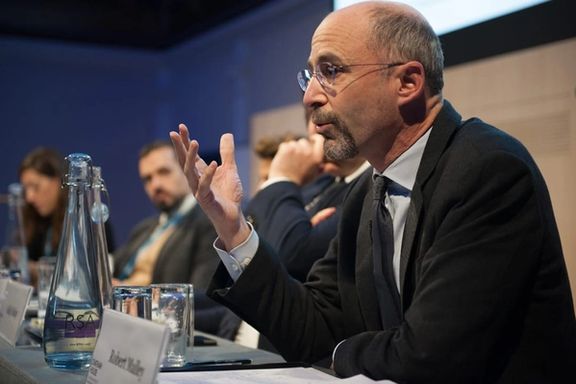
The United States Special Representative for Iran Robert Malley held an “excellent” phone conversation with South Korean First Vice Foreign Minister Choi Jong-kun about Iran.
Malley said in a tweet on Friday that Washington and Seoul “are committed to coordinating our efforts across a wide range of shared interests on Iran.”
He did not elaborate on what exactly was discussed but the two diplomats probably talked about the Islamic Republic’s frozen assets in Korean banks due to US sanctions.
Since the beginning of the year, Iran and South Korea announced on several occasions that they would start negotiations to devise a mechanism to release the funds frozen, but nothing materialized.
Two South Korea banks hold $7-9 billion of Iranian money, owed for oil imports, but the funds are locked under US sanctions, which were reimposed after former President Donald Trump in 2018 withdrew from the Iran nuclear deal, Joint Comprehensive Plan of Action (JCPOA).
In April, Iranian media said $7 billion of Iran's frozen funds in South Korea will be freed in exchange for the release of three American dual citizens held as hostages in Tehran.
Iranian hardliner newspaper funded by Iran’s Supreme Leader suggested later in April that Iran must close the Strait of Hormuz to South Korean vessels until Seoul releases $7 billion frozen funds.
US National Security advisor Jake Sullivan said in May that Iran’s money in South Korea and elsewhere will remain frozen as long as a nuclear deal has not been reached.

A conservative newspaper in Iran has called on President Ebrahim Raisi to shut down the Islamic Propagation Organization and spend the budget on pressing needs.
In an editorial authored by the daily's outspoken managing editor Masih Mohajeri on June 9, Jomhouri Eslami [Islamic Republic] writing about the Iranian government's economic problems said, "A government that holds up payments to pensioners as a bid to solve its economic problems should prioritize its expenditures and get rid of unnecessary organizations."
The daily asked: "Some of Iran's cultural organizations do nothing other than duplicating the efforts of other government institutions. For instance, what kind of service is the Islamic Propagation Organization rendering that justifies its survival?" The newspaper maintained: "The high-maintenance organization should have attained its initial goals during the past 40 years [of an Islamic government]. If it hasn't, it means that it has not been successful."
The Islamic Propagation Organization is a body that operates in parallel with Ministry of Culture and Islamic Guidance and one of its objectives is offering guidelines to Friday Prayer Imams in cities and towns nationwide.
Over the past four decades, the organization's main function has been justifying the government's policies and trumpeting the ideas of fundamentalists in Iran such as the Friday Prayer Imams in Isfahan and Mashhad. The two clerics are often criticized by the people for undermining human rights and advocating violence against women and those who follow a lifestyle different from the preferences of the fundamentalists.
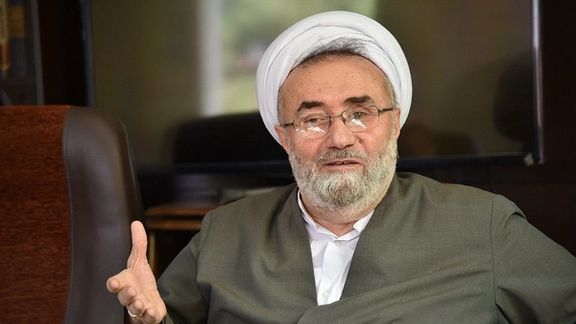
Last week, a young man in Isfahan attacked Yousef Tabatabainejad, the Imam in Isfahan who had opined that people can attack "bad-hijab" women at their own discretion. In their sermons on Friday June 10, several imams made outlandish statements. Ignoring Iran's economic problems, Rasoul Abdollahi who led the prayers in Tabriz said that Raisi's economic policy is being followed in Russia as an economic model for resistance.
Meanwhile, Mohamad Nabi Mousavi Fard in Ahwaz called for shaming those who undermine “Islamic values in the streets” as a lesson for others, while Ahmad Khatami in Tehran and many others in other cities repeated the official jargon about a resolution passed this week at the UN nuclear watchdog, the IAEA, criticizing Iran's non-cooperative behavior and praised the government for undermining IAEA safeguards.
In another article on Thursday, the Jomhouri Eslami wrote that the government has increased the Islamic Propagation Organization's budget by 156 per cent in for the current year. The article charged that the government of President Ebrahim Raisi has started what he called an "economic surgery" by targeting the poorest Iranians while giving more funds to government bodies such as the Islamic Propagation Organization.
Last year the organization received around $40 million based on the average exchange rate in 2021, there fore this year the appropriation is more than $100 million. Although this might not seem like a large sum by Western standards, in Iran an average person has a salary of $150 per month.
Overall, the government spends close to $800 million on propaganda outfits, not counting the state television with close to 40,000 employees and a $200 million budget plus advertising income.
The article went on to say that such organizations have been a burden on the country's annual budget and national financial resources for years without being able to contribute to productive efforts or the nation's welfare. The daily argued that economic pressures should be distributed fairly among various parts of the government and groups of the population.